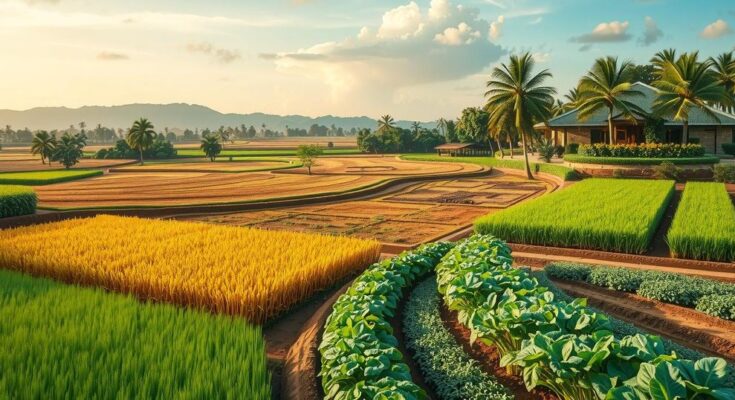ASEAN’s food security strategy must prioritize both climate adaptation and mitigation strategies. Despite contributing minimally to global greenhouse gas emissions, AMS suffer extensively from climate change’s adverse effects on agriculture. Adaptation measures, therefore, are crucial, alongside policy recommendations for enhancing resilience and efficiency in the agricultural sector during climate adversity.
In addressing food security in Southeast Asia, adaptation to climate change is as critical as mitigation efforts to reduce emissions. Following the Paris Agreement of 2015, ASEAN Member States (AMS) have committed to Nationally Determined Contributions (NDCs) emphasizing emission reduction, while adaptation might be more pertinent to ensuring food security amidst the compounded climate challenges.
Despite representing only 5.73 percent of global greenhouse gas emissions, AMS are experiencing severe climate impacts such as droughts, flooding, and altered weather patterns, affecting agricultural yields and food production chains. As temperatures rise, immediate adaptation measures focusing on resilience are imperative to safeguard food security in the region.
Adaptation strategies should evolve in tandem with mitigation, not merely as a reaction to climate emergencies. Previous actions have included diversifying crops to those that are heat and drought-resistant. Notably, countries like Laos, Myanmar, and Thailand aim to cultivate varieties such as millet and pulses, critical for food security. However, challenges arise as substituting traditional staples may lead to increased reliance on imports, jeopardizing self-sufficiency goals.
Climate-smart agriculture represents a promising approach involving high-yield and resilient crop varieties. Yet, many AMS struggle with large-scale deployment due to seed availability and unfulfilled yield expectations, necessitating collaborative initiatives among AMS for timely solutions.
Increasing production areas may clash with conservation efforts for essential carbon-sequestration sites. A more effective path could focus on intensifying current agricultural practices through improved irrigation and higher-yield seeds, thereby preserving critical ecosystems while addressing food needs.
Moreover, while several AMS endorse transitioning toward renewable energy, its implementation remains limited for smallholder farmers, who produce most of the region’s food. Therefore, enhancing the efficiency of existing carbon-based energy sources in agriculture warrants greater attention.
The upcoming ASEAN summits under Malaysia’s chairmanship provide an avenue for leadership in agricultural climate adaptation. The anticipated Strategic Plan for Food, Agriculture and Forestry 2026-2030 highlights a commitment to addressing food security through climate adaptation. Furthermore, the COP30 in Brazil in November 2025 offers AMS a platform to advocate for amplified financing and research in climate adaptation while harmonizing these efforts with mitigation goals.
In conclusion, for Southeast Asia to secure its food supply amidst climate change, it is crucial to balance mitigation strategies with robust adaptation measures. Established climate policies should emphasize resilience in agriculture, crop diversification, and collaboration among AMS. This dual approach not only promises to enhance food security but also ensures the longevity of local food systems against escalating climate impacts. Upcoming initiatives and summits may further solidify the role of AMS in championing climate adaptation efforts, thus fostering sustainability in the region.
Original Source: fulcrum.sg




